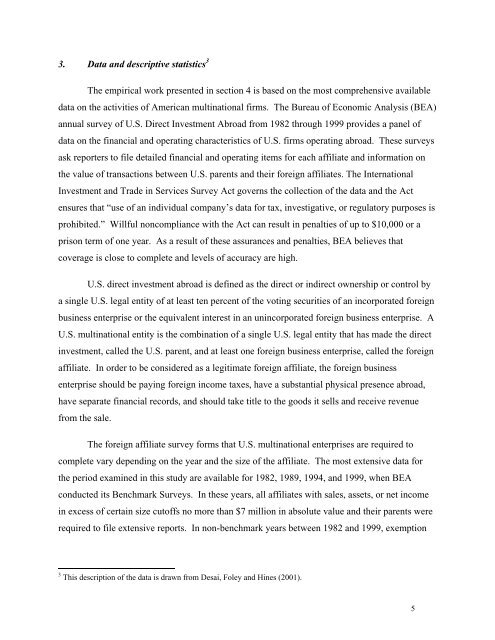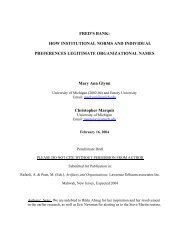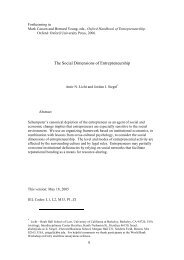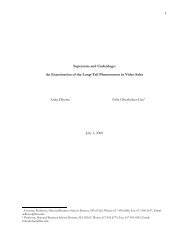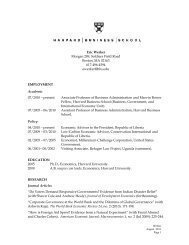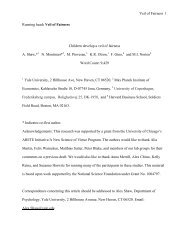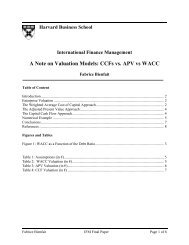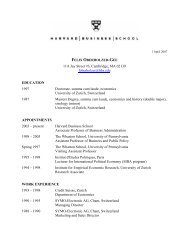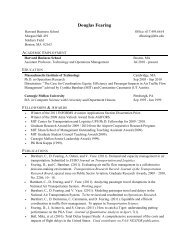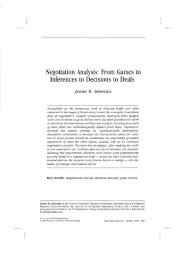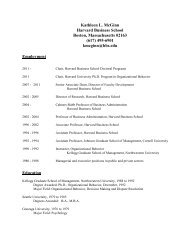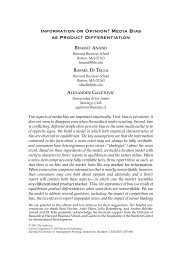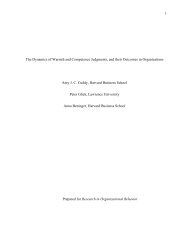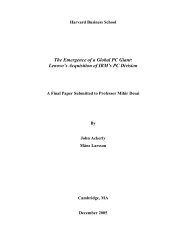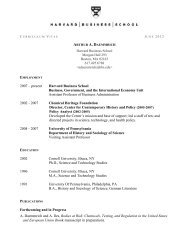The Demand for Tax Haven Operations - Harvard Business School
The Demand for Tax Haven Operations - Harvard Business School
The Demand for Tax Haven Operations - Harvard Business School
Create successful ePaper yourself
Turn your PDF publications into a flip-book with our unique Google optimized e-Paper software.
3. Data and descriptive statistics 3<br />
<strong>The</strong> empirical work presented in section 4 is based on the most comprehensive available<br />
data on the activities of American multinational firms. <strong>The</strong> Bureau of Economic Analysis (BEA)<br />
annual survey of U.S. Direct Investment Abroad from 1982 through 1999 provides a panel of<br />
data on the financial and operating characteristics of U.S. firms operating abroad. <strong>The</strong>se surveys<br />
ask reporters to file detailed financial and operating items <strong>for</strong> each affiliate and in<strong>for</strong>mation on<br />
the value of transactions between U.S. parents and their <strong>for</strong>eign affiliates. <strong>The</strong> International<br />
Investment and Trade in Services Survey Act governs the collection of the data and the Act<br />
ensures that “use of an individual company’s data <strong>for</strong> tax, investigative, or regulatory purposes is<br />
prohibited.” Willful noncompliance with the Act can result in penalties of up to $10,000 or a<br />
prison term of one year. As a result of these assurances and penalties, BEA believes that<br />
coverage is close to complete and levels of accuracy are high.<br />
U.S. direct investment abroad is defined as the direct or indirect ownership or control by<br />
a single U.S. legal entity of at least ten percent of the voting securities of an incorporated <strong>for</strong>eign<br />
business enterprise or the equivalent interest in an unincorporated <strong>for</strong>eign business enterprise. A<br />
U.S. multinational entity is the combination of a single U.S. legal entity that has made the direct<br />
investment, called the U.S. parent, and at least one <strong>for</strong>eign business enterprise, called the <strong>for</strong>eign<br />
affiliate. In order to be considered as a legitimate <strong>for</strong>eign affiliate, the <strong>for</strong>eign business<br />
enterprise should be paying <strong>for</strong>eign income taxes, have a substantial physical presence abroad,<br />
have separate financial records, and should take title to the goods it sells and receive revenue<br />
from the sale.<br />
<strong>The</strong> <strong>for</strong>eign affiliate survey <strong>for</strong>ms that U.S. multinational enterprises are required to<br />
complete vary depending on the year and the size of the affiliate. <strong>The</strong> most extensive data <strong>for</strong><br />
the period examined in this study are available <strong>for</strong> 1982, 1989, 1994, and 1999, when BEA<br />
conducted its Benchmark Surveys. In these years, all affiliates with sales, assets, or net income<br />
in excess of certain size cutoffs no more than $7 million in absolute value and their parents were<br />
required to file extensive reports. In non-benchmark years between 1982 and 1999, exemption<br />
3 This description of the data is drawn from Desai, Foley and Hines (2001).<br />
5


